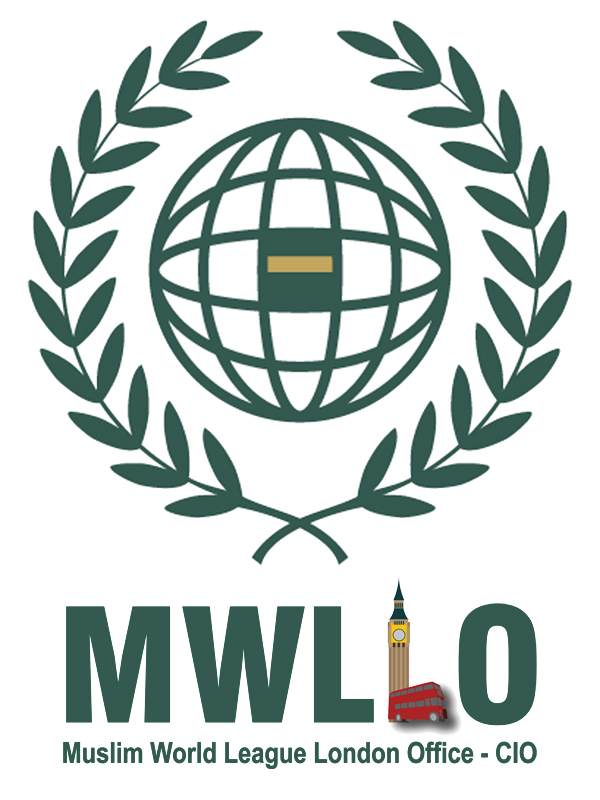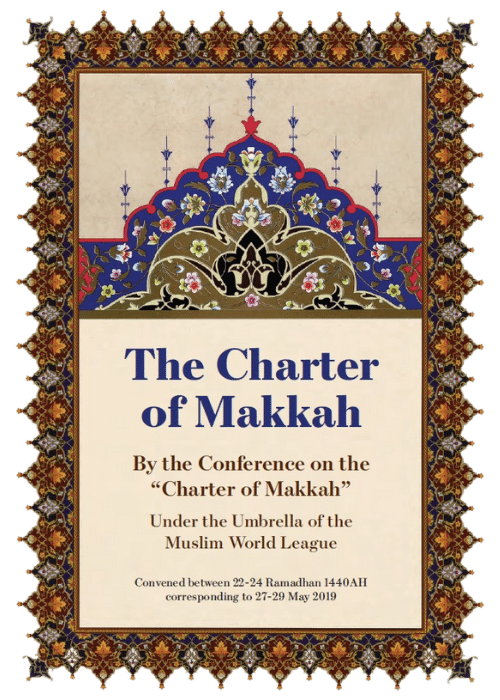World Day of Social Justice
20 February
اليوم العالمي للعدالة الاجتماعية
20 شباط/فبراير

Dr Ahmad bin Mohammad Qadi Makhdoom
Regional Director of the Muslim World League in London
Dr Ahmad bin Mohammad Qadi Makhdoom, a consultant for Strategic Planning and Management; Regional Director of the Muslim World League in London; member of the Board of Trustees of the Islamic Cultural Centre and the Edinburgh Mosque of the Custodian of the Two Holy Mosques, and the Executive Director of the Mosque of the Custodian of the Two Holy Mosques in Gibraltar.
Dr Ahmad Makhdoom is the author of several books on school management and strategic planning. He has participated in many conferences and scientific forums.
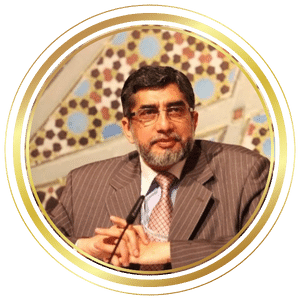
Sir Iqbal Abdul Karim Mussa Sacranie, OBE
Officer of the Most Excellent Order of the British Empire, Religious Leader
Sir Iqbal Abdul Karim Mussa Sacranie, Officer of the Most Excellent Order of the British Empire served as Secretary General of the Muslim Council of Britain until June 2006.

Rabbi Jeff Berger
Rabbi of the Spanish & Portuguese Wembley Sephardi Synagogue
Rabbi Jeff Berger is currently the rabbi of the Spanish & Portuguese Wembley Sephardi Synagogue. Previously he founded the Rambam Sephardi Synagogue in Borehamwood where he served for nearly 10 years. He also is a volunteer chaplain for the Hertfordshire Constabulary and a member of the Eco-Synagogue board. Rabbi Jeff is a passionate advocate of interfaith dialogue and engagement, and from 2019-20, was the interfaith advisor for Mitzvah Day. He was ordained in 2009 after having a full career in the field of commerce.

Revd. Andy Marshall
Chaplain and Interfaith Advisor to the Royal Veterinary College
Revd. Andy Marshall is the Chaplain and Interfaith Advisor to the Royal Veterinary College. Andy has worked in full time ministry in the Anglican church since 1993, spending 6 years as a full time youth worker before being ordained as a deacon in 1999 and a priest in 2000. From the beginning of his ministry career in South Africa, he has advocated for people of different faiths, even as a teenager bringing together teenagers from different cultural and faith communities that had previously been separated by law under the old apartheid South African government.

Sheikh Md Zarzor
Friday Khatib, MWLLO

Sarah Franks
Interfaith Project Manager, Mitzvah Day
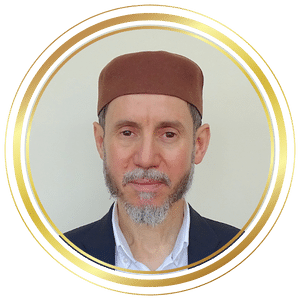
Imam Fathi Labidi
Imam, MWLLO
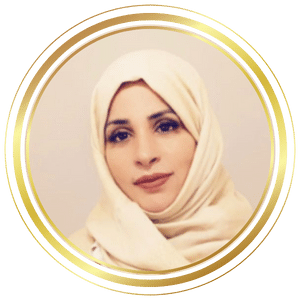
Dr Eiman Almami
Deputy Regional Director, MWLLO
2022 Theme: Achieving Social Justice through Formal Employment
More than 60 per cent of the world’s employed population, that is 2 billion women, men and youth, earn their livelihoods in the informal economy. The COVID-19 pandemic has put a spotlight on the vulnerability of workers in the informal economy. Informal workers, who often lack any form of social protection or employment-related benefits, are twice as likely to be poor compared to formal workers. Most people enter the informal economy not by choice, but due to lack of opportunities in the formal economy.
Promoting the transition to formal employment is a necessary condition to reduce poverty and inequalities, advance decent work, increase productivity and sustainability of enterprises and expand government’s scope of action, notably in times of crisis. In accordance with the Transition from the Informal to the Formal Economy Recommendation, 2015 (No. 204), and acknowledging that the pathways to transition to formality depend on national circumstances, comprehensive integrated strategies that tackle multiple drivers of informality work best. Effective gender-responsive formalization strategies combine interventions to increase the ability of the formal economy to provide for decent work opportunities, to absorb workers and economic units currently in the informal economy, and to strengthen the ability of people and enterprises to enter the formal economy. The identification of the right incentives and the elimination of obstacles to formality are essential. In the context of the COVID-19 crisis, preventing the informalization of formal jobs is also of particular importance.
Formalization results from a complex and gradual process. As part of this process, reliable and relevant statistics are needed to better understand the characteristics and drivers of the informal economy, and monitor progress towards formalization. Many countries are utilizing new technologies to facilitate the transition from informal to formal employment through E-formalization tools, such as electronic database systems for proper identification of employment and wider access to ICTs and e-commerce.
The 2030 Agenda and the Secretary-General’s report on Our Common Agenda, acknowledge the transition to formality as a priority. The report also calls for road maps to be established to integrate informal workers and enterprises into formal economies, in order to benefit from women’s full participation in the workforce, and to reduce inequalities more broadly. Under a new partnership agreement between the ILO and UNDP, the two organizations have agreed to undertake joint programming to generate pathways to formality, which will also support the Global Accelerator on Jobs and Social Protection for a Just Transition.
Background
The International Labour Organization unanimously adopted the ILO Declaration on Social Justice for a Fair Globalization on 10 June 2008. This is the third major statement of principles and policies adopted by the International Labour Conference since the ILO’s Constitution of 1919. It builds on the Philadelphia Declaration of 1944 and the Declaration on Fundamental Principles and Rights at Work of 1998. The 2008 Declaration expresses the contemporary vision of the ILO’s mandate in the era of globalization.
This landmark Declaration is a powerful reaffirmation of ILO values. It is the outcome of tripartite consultations that started in the wake of the Report of the World Commission on the Social Dimension of Globalization. By adopting this text, the representatives of governments, employers’ and workers’ organizations from 182 member States emphasize the key role of our tripartite Organization in helping to achieve progress and social justice in the context of globalization. Together, they commit to enhance the ILO’s capacity to advance these goals, through the Decent Work Agenda. The Declaration institutionalizes the Decent Work concept developed by the ILO since 1999, placing it at the core of the Organization’s policies to reach its constitutional objectives.
The Declaration comes at a crucial political moment, reflecting the wide consensus on the need for a strong social dimension to globalization in achieving improved and fair outcomes for all. It constitutes a compass for the promotion of a fair globalization based on decent work, as well as a practical tool to accelerate progress in the implementation of the Decent Work Agenda at the country level. It also reflects a productive outlook by highlighting the importance of sustainable enterprises in creating greater employment and income opportunities for all.
The General Assembly recognizes that social development and social justice are indispensable for the achievement and maintenance of peace and security within and among nations and that, in turn, social development and social justice cannot be attained in the absence of peace and security, or in the absence of respect for all human rights and fundamental freedoms.
It further recognizes that globalization and interdependence are opening new opportunities through trade, investment and capital flows and advances in technology, including information technology, for the growth of the world economy and the development and improvement of living standards around the world, while at the same time there remain serious challenges, including serious financial crises, insecurity, poverty, exclusion and inequality within and among societies, and considerable obstacles to further integration and full participation in the global economy for developing countries, as well as some countries with economies in transition.
On 26 November 2007, the General Assembly declared that, starting from the sixty-third session of the General Assembly, 20 February will be celebrated annually as the World Day of Social Justice.
Source: UN
موضوع احتفالية 2022 هو ’’تحقيق العدالة الاجتماعية بالتوظيف الرسمي‘‘
يكسب أكثر من 60 في المائة من السكان العاملين في العالم، أي ملياري شخص، عيشهم في الاقتصاد غير الرسمي. وقد سلطت جائحة كورونا (كوفيد – 19) الضوء على ضعف العمال في الاقتصاد غير الرسمي. فالعمال غير الرسميين — نظرًا لأنهم غالبًا ما يفتقرون إلى أي شكل من أشكال الحماية الاجتماعية أو المزايا المتعلقة بالتوظيف — هم أضعف بمرتين مقارنة بأقرانهم من العاملين الرسميين. ولا يدخل معظم الناس الاقتصاد غير الرسمي باختيارهم، وإنما بسبب نقص الفرص في الاقتصاد الرسمي.
ويعتبر تعزيز الانتقال إلى النظام الرسمي شرطًا ضروريًا للحد من الفقر وغياب المساواة، وتعزيز العمل اللائق، وزيادة الإنتاجية واستدامة المؤسسات وتوسيع نطاق عمل الحكومة، ولا سيما في أوقات الأزمات. فوفقًا لتوصية الانتقال من الاقتصاد غير الرسمي إلى الاقتصاد الرسمي، الصادرة في عام 2015 (تحت رقم 204)، وإقرارا بأن مسارات الانتقال إلى النظام الرسمي تعتمد على الظروف الوطنيةوالخطط العامة المتكاملة والشاملة التي تعالج الدوافع المتعددة للسمة غير الرسمية تعمل بشكل أفضل. وتجمع الخطط العامة والشاملة الفعالة والمستجيبة للنوع الاجتماعي بين إضفاء الطابع الرسمي بين التدخلات لزيادة قدرة الاقتصاد الرسمي على إتاحة فرص العمل اللائق واستيعاب العمال والوحدات الاقتصادية الموجودة حاليًا في الاقتصاد غير الرسمي، وتعزيز قدرة الأفراد والمؤسسات على دخول الاقتصاد الرسمي. ومن الضروري تحديد الحوافز الصحيحة وإزالة العوائق التي تعترض الإجراءات الشكلية. وفي سياق أزمة كورونا، يعتبر منع إضفاء الطابع غير الرسمي على الوظائف الرسمية ذا أهمية خاصة.
وينتج عن إضفاء الطابع الرسمي عملية معقدة وتدريجية. وهناك حاجة إلى إحصاءات موثوقة وذات صلة من أجل فهم أفضل لخصائص ودوافع الاقتصاد غير الرسمي ورصد التقدم المحرز نحو إضفاء الطابع الرسمي. ولذا، تستخدم عديد البلدان تقنيات جديدة لتسهيل الانتقال من التوظيف غير الرسمي إلى العمل الرسمي من خلال أدوات إضفاء الطابع الرسمي على الإنترنت مثل أنظمة قواعد البيانات الإلكترونية لتحديد العمالة بشكل مناسب وتوسيع نطاق الوصول إلى تكنولوجيا المعلومات والاتصالات والتجارة الإلكترونية.
وتقر خطة عام 2030 وتقرير الأمين العام عن خطتنا المشتركة بالانتقال إلى الإجراءات الرسمية كأولوية. كما يدعوان إلى وضع خرائط طرق لدمج العمال غير المهيكلين والمؤسسات في الاقتصادات الرسمية من أجل الاستفادة من المشاركة الكاملة للمرأة في القوى العاملة، والحد من غياب المساواة على نطاق أوسع. وبموجب اتفاقية شراكة جديدة بين منظمة العمل الدولية وبرنامج الأمم المتحدة الإنمائي، اتفقت المنظمتان على الاضطلاع ببرمجة مشتركة لإنشاء مسارات للإجراءات الرسمية، التي ستدعم كذلك المسرع العالمي للوظائف والحماية الاجتماعية لضمان عملية انتقال عادل.
معلومات أساسية
اعتمدت منظمة العمل الدولية بالإجماع إعلان منظمة العمل الدولية بشأن العدالة الاجتماعية من أجل عولمة عادلة في 10 حزيران/ يونيو 2008. وهذا هو بيان المبادئ والسياسات الرئيسي الثالث الذي اعتمده مؤتمر العمل الدولي منذ صدور دستور منظمة العمل الدولية لعام 1919. و يبنى هذا البيان على إعلان فيلادلفيا لعام 1944 والإعلان المتعلق بالمبادئ والحقوق الأساسية في العمل لعام 1998. و يعرب إعلان 2008 عن رؤية معاصرة لولاية منظمة العمل الدولية في حقبة العولمة.
إن هذا الإعلان التاريخي إعادة تأكيد قوية لقيم منظمة العمل الدولية.و قد نتج عن المشاورات الثلاثية التي بدأت في أعقاب تقرير اللجنة العالمية المعنية بالبعد الاجتماعي للعولمة. وباعتماد هذا النص ، يشدد ممثلوا الحكومات وأرباب العمل ومنظمات العمال من 182 دولة من الدول الأعضاء على الدور الرئيس لمنظمتنا الثلاثية في المساعدة على تحقيق التقدم والعدالة الاجتماعية في سياق العولمة.ويلتزمون سويا بتعزيز قدرة منظمة العمل الدولية على تحقيق هذه الأهداف، من خلال برنامج العمل اللائق و.يضفي هذا الإعلان الطابع المؤسسي على مفهوم العمل اللائق الذي وضعته منظمة العمل الدولية منذ عام 1999، وبذالك يضعه في صلب سياسات المنظمة لتحقيق أهدافها الدستورية.
ويصدر هذا الإعلان في لحظة سياسية حاسمة، و يعكس توافق الأراء الواسع النطاق بشأن الحاجة الى بُعد اجتماعي قوي للعولمة في تحقيق نتائج أفضل وعادلة للجميع. ويشكل بوصلة للنهوض بعولمة عادلة تقوم على أساس العمل اللائق، وكذلك أداة عملية لتسريع التقدم في تنفيذ برنامج العمل اللائق على المستوى القطري. كما يظهر نظرة إنتاجية من طريق تسليط الضوء على أهمية المنشآت المستدامة في خلق المزيد من فرص العمالة والدخل للجميع.
تسلم الجمعية العامة بـأن لا غنى عن التنمية الاجتماعية والعدالة الاجتماعية لتحقيق السلام والأمن وصونهما داخل الدول وفيما بينها وأن لا سبيل، بالتالي، إلى بلوغ التنمية الاجتماعية والعدالة الاجتماعية دون أن يسود السلام والأمن ويشيع احترام جميع حقوق الإنسان والحريات الأساسية.
و تسلم كذلك بأن العولمة والترابط يتيحان فرصا جديدة، عبر التجارة والاستثمار وتدفق رؤوس الأموال وأوجه التقدم التكنولوجي، بما يشمل تكنولوجيا المعلومات، أمام نمو الاقتصاد العالمي والتنمية وتحسين مستويات المعيشة في العالم، مع استمرار وجود تحديات جسام، منها الأزمات المالية الحادة وانعدام الأمن والفقر والاستبعاد وانعدام المساواة داخل المجتمعات وفيما بينها، والعقبات الكأداء التي تحول دون زيادة اندماج البلدان النامية، وكذلك بعض البلدان التي تمر اقتصاداتها بمرحلة انتقالية، ومشاركتها الكاملة في الاقتصاد العالمي.
في 26 تشرين الثاني/نوفمبر 2007، أعلنت الجمعية العامة أنه اعتبارا من الدورة الثالثة والستين للجمعية العامة، تقرر إعلان الاحتفال سنويا بيوم 20 شباط/فبراير بوصفه اليوم العالمي للعدالة الاجتماعية، اعتبارا من الدورة الثالثة والستين للجمعية العامة.
https://www.un.org/ar/observances/social-justice-day
